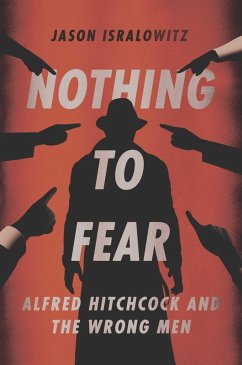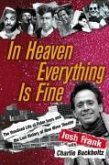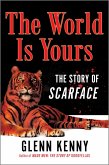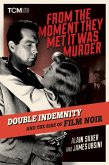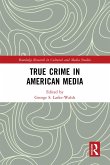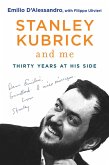A fascinating, meticulously researched deep dive into one of Alfred Hitchcock's most underappreciated films, The Wrong Man, and America's shameful history of wrongful convictions leading up to the real-life event upon which the film is based. "Thanks to Jason Isralowitz for finally writing a book about Hitchcock's most under-appreciated movie. Isralowitz brilliantly contextualizes the movie and the true-life story of Manny Balestrero, preceded by an eye-opening prologue detailing the justice system's long history of indicting 'the wrong man' (and, in a few cases, 'the wrong woman'). A must for both cinephiles and true crime buffs." Bruce Goldstein, Repertory Artistic Director, Film Forum, New York. "Nothing to Fear is a fascinating history, not only for fans of Hitchcock but for anyone interested in how our justice system works (and sometimes doesn't). The story of 'the wrong man' continues to resonate well into the twenty-first century, and will make you question your assumptions about innocence and guilt." Dawn Raffel, author of The Strange Case of Dr. Couney, named by NPR as one of 2018's Great Reads and winner of a 2019 Christopher Award. Alfred Hitchcock is not often associated with a social justice movement. But in 1956, the world's most famous director focused his lens on an issue that cuts to the heart of our criminal justice system: the risk of wrongful conviction. The result was The Wrong Man, a wrenching and largely overlooked drama based on the real-life arrest of Queens musician Christopher "Manny" Balestrero for two robberies he did not commit. With documentary-like authenticity, Hitchcock and his team meticulously re-created Manny's journey through the corridors of justice and the devastating effect of the arrest on his wife, Rose. In so doing, the director cast a damning light on New York's history of mistaken identity cases. The Balestreros fell victim to the same rush to judgment and suggestive eyewitness identification procedures that had doomed innocent defendants in earlier cases. Their ordeal is part of a larger story of the state's failure to reckon with its role in other wrongful prosecutions in the first half of the twentieth century. Attorney Jason Isralowitz tells this story in a revelatory book that situates both the Balestrero case and its cinematic counterpart in their historical context. Drawing from archival records, Isralowitz delivers a gripping account of Manny's trial and new insights into an errant prosecution. He then examines how Hitchcock fused striking visual motifs with social realism to create a timeless work of art. The film bears witness to issues that animate the contemporary innocence movement, including the unreliability of eyewitness testimony, the need for police lineup reforms, and the dangers of investigative "tunnel vision." Given the hundreds of exonerations of the wrongfully convicted in recent years, The Wrong Man remains as timely as ever.
Dieser Download kann aus rechtlichen Gründen nur mit Rechnungsadresse in A, B, BG, CY, CZ, D, DK, EW, E, FIN, F, GR, HR, H, I, LT, L, LR, M, NL, PL, P, R, S, SLO, SK ausgeliefert werden.

